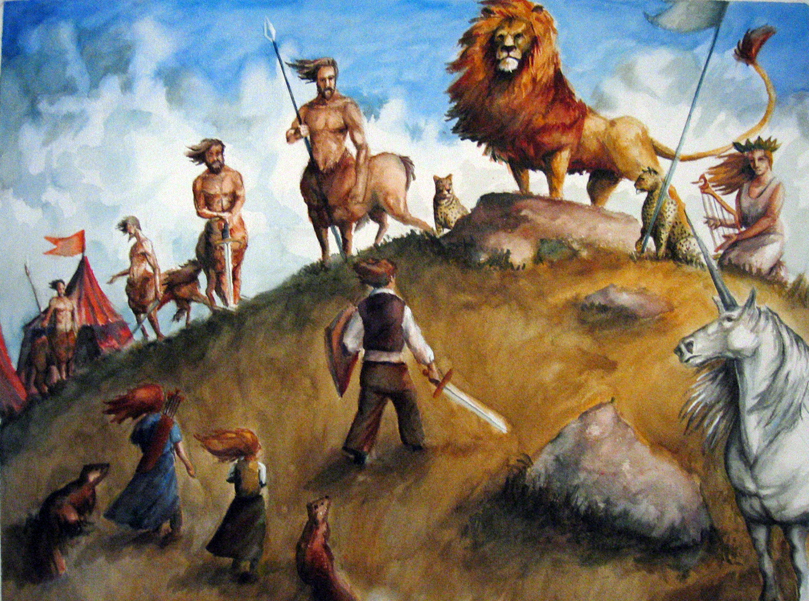Christianity Today recently posted something that caught my eye - Alister McGrath's Top 5 CS Lewis Books (If you don't know who Dr. McGrath is, I suggest a quick google search or click his name for an impressive feed of accomplishments - one of which includes a new book CS Lewis: A Life which is sitting on my shelf, waiting to be read!).
Of course I took this as a challenge to figure out my top 5 books. If I had to choose (although it's highly unlikely that anyone would ever demand such a thing), I suppose it would go something like this:
1. Mere Christianity - Not only was this the first book I ever read by Lewis (and, let's face it, I'm nostalgic) , but it has had tremendous significance in my own spiritual life. The way he articulated certain aspects of faith helped bring to life what I believed more than anything I had ever heard. Each time I pick up this book, I find more incredible ways Lewis speaks to my own understanding of Christianity.
2. The Magician's Nephew - My nostalgia peeks through with this book, too, as it is the only Narnia book I had ever read until a few years ago. I am taken aback by the incredible way Lewis paints creation to his reader. More than by reading Genesis, I feel as if I am there, witnessing God work. The bits of humor, the curious children, and the talking animals all speak to me (pun intended?) as I flip page after page, soaking in the words.
3. The Screwtape Letters - Seriously one of the most impressive bits of work on Satan I have ever read. The way Lewis is able to get into character and write from the Devil's perspective is truly a gift as he shines a light on what evil is after. It provokes so much thought to grasp what is occurring, but it truly makes the reader question if they have fallen into some of Screwtape's traps in life.
4. Till We Have Faces - Like Lewis, I am a fan of Greek mythology. Unlike Lewis, I am not a scholar of such works. However, I appreciate his retelling of the myth of Cupid and Psyche in this novel. I love the character development and the humanity that shines through these Greek gods & goddesses.
5. The Lion, The Witch, and The Wardrobe - How could this not be on the list? Maybe I am not as nostalgic towards this book (because I didn't read it until I was in my twenties!), but it truly is a classic. The fact of the matter is that Lewis is able to weave in moral and faith-based truths throughout his fictional books. I believe I have often gained more of an idea of Jesus's sacrifice through Aslan's sacrifice than I do sometimes by reading Scripture.
Lewis has a way of writing that truly shows creativity and sensitivity towards his readers. He takes Biblical truths and shares them through words and analogies that make sense.
So what are your top 5 Lewis books? Are you a fiction-lover or a novice non-fiction reader (or split, like me)?
I'd love to hear from you!





